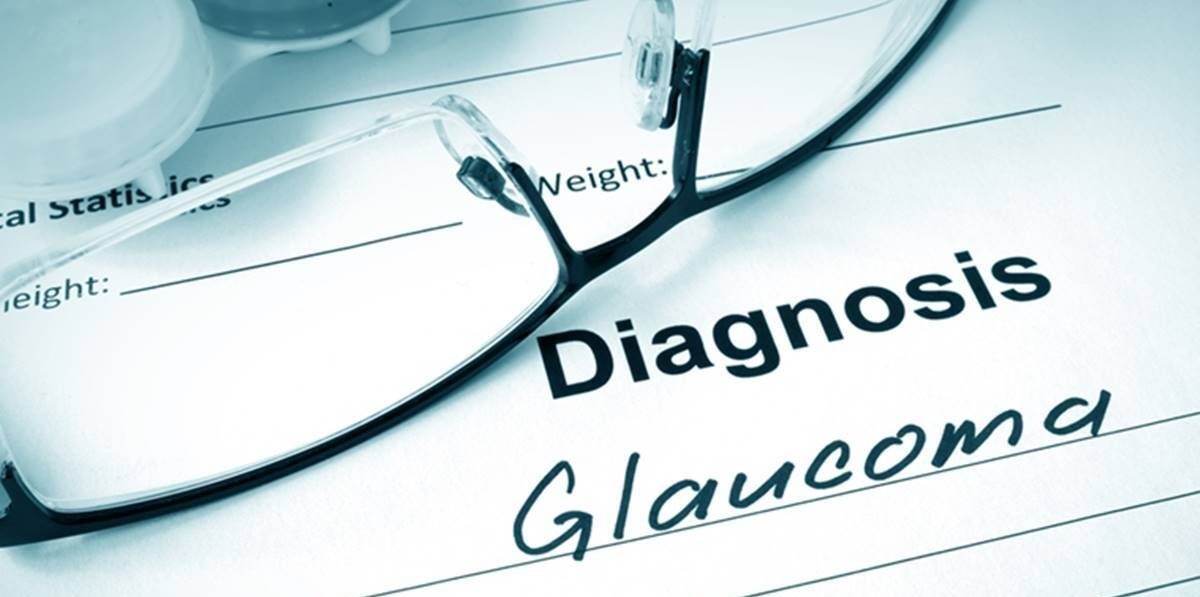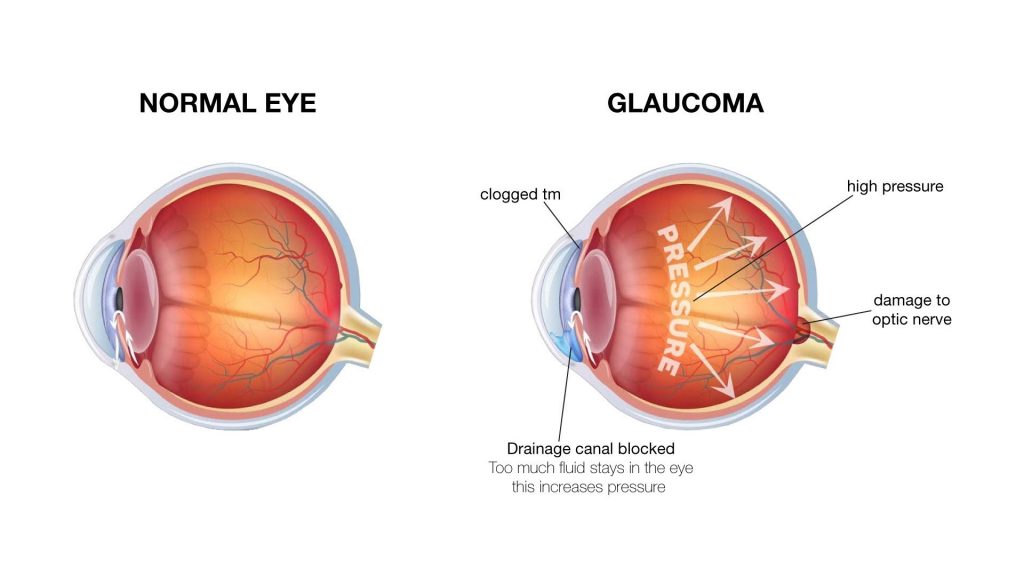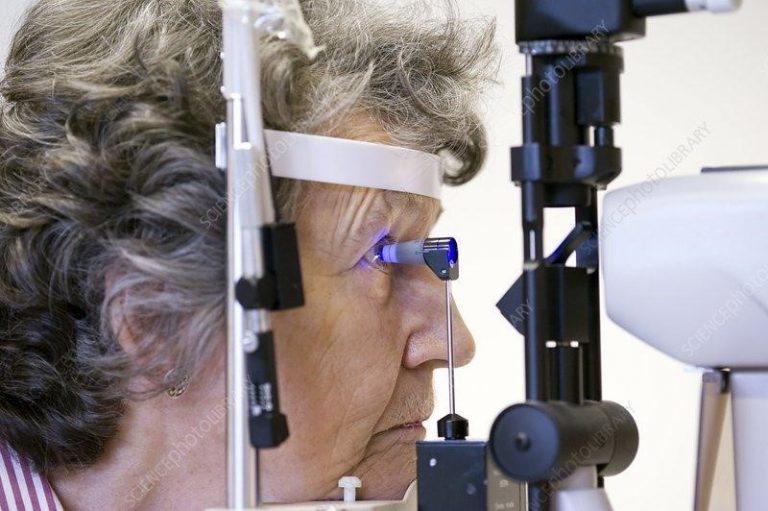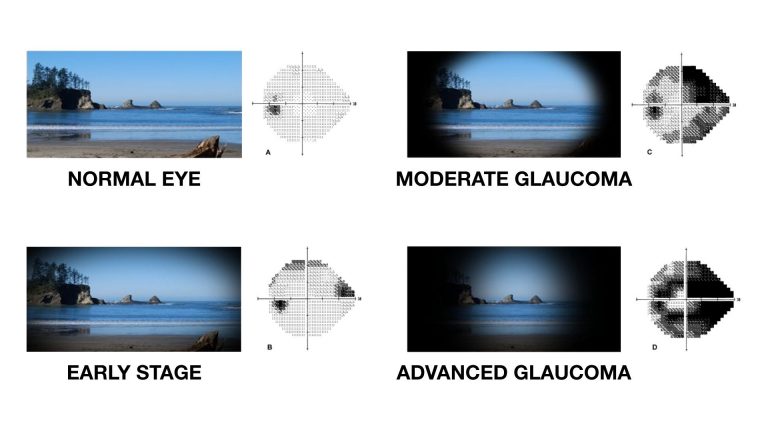Glaucoma


Glaucoma is a disease involving the optic nerves of the eyes- usually affecting both of the eyes. It usually occurs when there is an escalation of pressure in the eyes. Our eyes usually produce a protective fluid (that surrounds the tissues of the eyes) also known as aqueous humour. An optimum eye pressure is achieved when the amount of fluid produced is equivalent to the amount of fluid being drained out of the eyes. If there is any slight blockage in the outflow channel, the pressure in the eyes rises due to the accumulation of the fluid surrounding the eyes.
There are several distinguished types of glaucoma; one being acute or close-angle glaucoma that is rare and occurs due to a sudden, high increment in the eye pressure which causes pain. Another type being chronic or open-angle glaucoma which occurs gradually and is often left undetected due to the absence of any signs or symptoms. Next, secondary glaucoma is caused by an inflammation of the middle layer of the eyes. Another type of glaucoma would be childhood or congenital glaucoma which is extremely rare and only occurs in very young children due to abnormalities in the eyes.
A few risk factors increase the chances of developing glaucoma. One of them is family history which means if your parents or siblings have glaucoma, you have a significant risk of developing it as well. Another risk factor would be age– the older you are, the higher the risk of developing glaucoma. Ethnic groups also play a role in increasing the chance of developing glaucoma, in which people who are of Afro-Caribbean and African descent will have a higher risk of developing glaucoma. Other than that, short sightedness can also make you more prone to develop glaucoma. Diabetes also appears to be another risk factor of developing glaucoma.
Oftentimes, glaucoma goes undetected due to absence of signs and symptoms in the early stages. Given the situation that you have acute or open-angle glaucoma, it will take a long time before your eyesight deteriorates. When a person experiences blurred vision, dull pain around the head, nausea or vomiting or seeing a glare or shadow around the light of a lamp, he or she is usually at a severe level and require guidance from an ophthalmologist with urgency. Therefore for those that have a higher risk for developing glaucoma, it would be advisable to undergo an eye examination yearly. After all, prevention is better than cure.
Thus, eye tests that are simple and painless should be performed regularly for early detection. Firstly, an eye pressure test in which a local anesthetic eye drop will be placed in both of the eyes before a small instrument is gently placed against your eye to measure the intraocular pressure of the eyes.
 Eye pressure test
Eye pressure test
Next, optic nerve examination can be conducted to examine the condition of your optic nerves.

A visual field test can also be performed to test for the missing areas of peripheral vision in which patients will click a button when they see a light flash upon displays of various light spots.

Once damage is done to the vision by glaucoma, it is hardly reversible. However, there are treatments that can prevent the eye-sight from going worse. The go-to treatment for acute or open-angle glaucoma is eye drops that patients need to use for lifelong. In the early stages of glaucoma, these eye drops can help control the eye pressure and therefore prevent further damage to the eyes. The effectiveness of the eye drop will be determined by the ophthalmologist upon regular glaucoma checks. If the use of eye drops is unable to control glaucoma, laser procedures can help to drain the fluid out of the eye effectively or surgery on the draining channel can be performed as well.
Certain lifestyle habits can be easily adapted to reduce the severity of glaucoma. Firstly, limit caffeine intake as caffeine can increase the pressure of the eyes. Next, limit alcohol intake as excessive drinking of alcohol can damage optic nerves. Fish oil supplements can help to improve eye health as well. Exercising cautiously can help to improve glaucoma and general health. Other than that, sleeping with your head on a pillow can help to reduce eye pressure as well.
References
- Ow Yong, S.E. (2021). [Comparison of normal eye with glaucoma eye]. Vista Eye Specialist. https://www.vista.com.my/pages/2021/02/17/glaucoma/
- Salmon, J. (2015) Glaucoma information for patients. Available at: https://www.ouh.nhs.uk/patient-guide/leaflets/files/11826Pglaucoma.pdf
- NHS. (2021). Glaucoma. Available at: https://www.nhs.uk/conditions/glaucoma/
- Glaucoma UK. (2021). Living with Glaucoma. Available at: https://glaucoma.uk/care-support/living-with-glaucoma/
- Othman, S. (2019). Glaukoma. Available at: http://www.myhealth.gov.my/dewasa-glaukoma/




